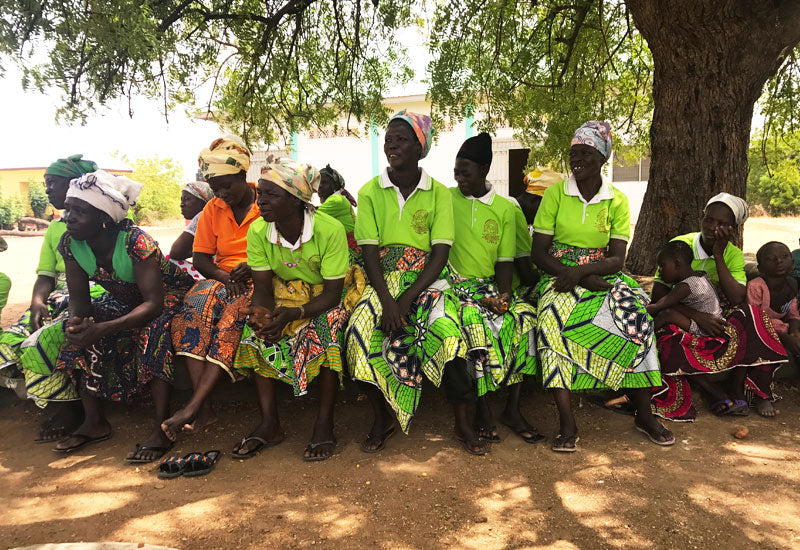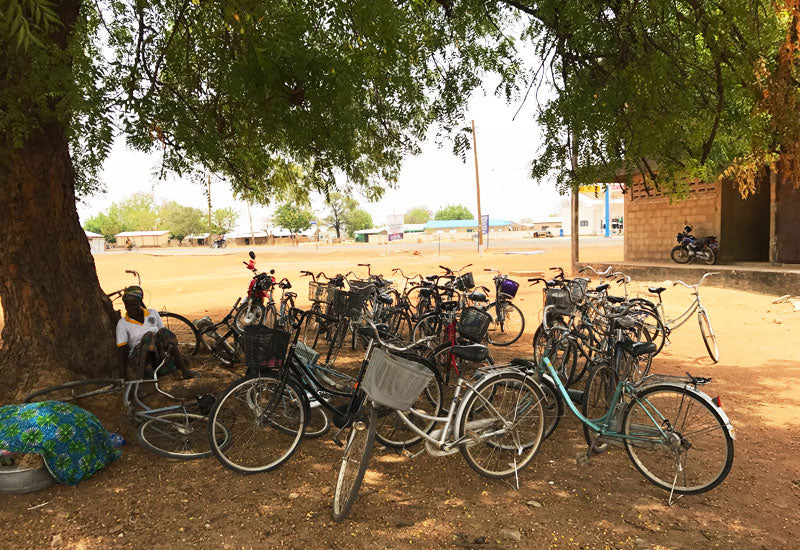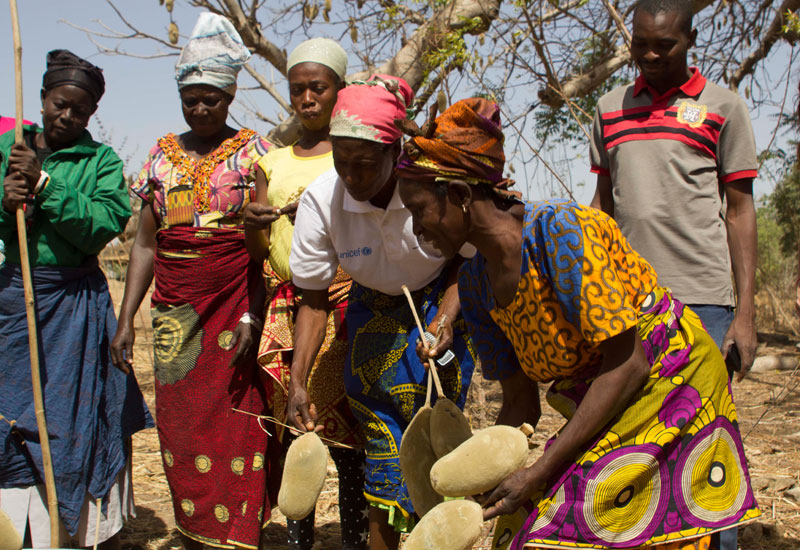
Aduna's Social Impact: Update on Our Baobab Supply Chain by Co-Founder Nick
The baobab harvest in Northern Ghana happens in a relatively short space of time. The fruits are picked, collected and bagged during January and February, the processing of the fruit follows alongside and by May the season is all but finished.
Every year, during harvest time, I take the long trip to Paga to meet with our NGO partner, ORGIIS, a local community organisation whose work is dedicated to improving the lives of communities within the region. From the capital Accra, which is on the Ghanaian coast, you catch an internal flight to Tamale in the centre of the country followed by a three-hour car journey to Ghana’s northernmost town, Bolgatanga. From here, it’s a further half hour drive to reach Paga on the Burkina Faso border - one of the most remote areas of Ghana - where our baobab fruit supply chain is based.
Discussing the harvest, looking at ways to improve our processing: these are all important aspects of the trip. But the highlight is always the journey into the countryside to visit the remote communities where the baobab trees grow in abundance and small clusters of mud brick huts dot the landscape. As a social business, the impact we make is hugely important. Facts, figures and photographs are all vital ways of communicating this impact back in London…but nothing is more vivid and personally affecting as talking with the villagers directly and hearing the stories as to how the growing demand for baobab is having a direct improvement on their lives.

Top image: Aduna Co-Founders Nick Salter & Andrew Hunt (back centre) with ORGIIS Manager Julius Awaregya (centre left) and Aduna Baobab Producers in Paga, Ghana
A shady meeting spot under a large tree
Each community has its own special meeting place; always a large, wide-spreading tree (often a baobab) that casts enough shade for the women of the village to sit and discuss collective issues. Here we meet, sitting in a semi-circle, listening, questioning, sharing ideas and learning how the new market in baobab is impacting their lives. The dry season lasts for seven months in this part of West Africa and the opportunities to earn income were negligible, if not non-existent, before the communities could sell their baobab fruit to Aduna. We hear stories about how school fees are being paid, how children are now being educated, how money is being invested in growing more crops in the rainy season and how additional income is helping to put food on the table.
Perhaps most illustrative are the physical signs. At one community meeting, a woman points out a sheet of shiny new corrugate atop her mud hut, glinting in the distance under the sun. Literally, a roof over her head. She had been able to buy this metal roof directly as a result of her baobab earnings. And at the processing centre, where the women we employ once walked to the facility, a group of bicycles are now parked outside, signs of a new-found mobility.

Bicycles outside our baobab processing centre
It can be difficult to fully appreciate the difference that this new stream of income is having to the women that live in this harsh environment. Many individuals have to manage at a true subsistence level: an income of just £8 to £12 per year. Working with Aduna on the baobab harvest can boost that income to well over £100 per year. Insignificant by western standards but transformational in the remote villages of Northern Ghana.
We are now working with over 650 baobab producers from 20 communities. The women harvest the fruits using a long stick which they loop around a branch and pull downwards, causing the fruits to fall to the floor. Luckily baobab fruits have hard, coconut-like shells so the fruit pulp within is protected even if the fruit falls from up to 20 metres high.
The women then collect the fruits into baskets and bring them to our processing centre where we buy them at a premium to the local market rate.

Harvesting baobab fruits
We also employ over 200 women to process the fruits into powder, ready for shipping to the UK where the final sieving and checks take place.
In total we are working with over 850 women in Upper East Ghana who between them have over 5,000 dependents (children or family members who live with them). By stocking and buying our baobab products, our partners and our customers are literally transforming thousands of lives.
As the demand for baobab grows around the world, the social impact will grow alongside, helping more and more women to improve their lives and those of their families. This is what we call “The Inspiring Possibility of Baobab”. Thank you for being part of this inspiring journey.
Article by Nick Salter, Aduna Co-Founder
MORE LIKE THIS:
Read our case studies with baobab producers Akongba Kudara & Weniamo Kwarayire to see how working with Aduna has transformed their lives.
Feeling inspired to help us create a global demand for baobab? Tell your friends all about the amazing benefits of the #feelgoodfruit, leave a review on our online shop or stock up on some baobab goodness for yourself. You can shop the full Aduna Baobab range here.







